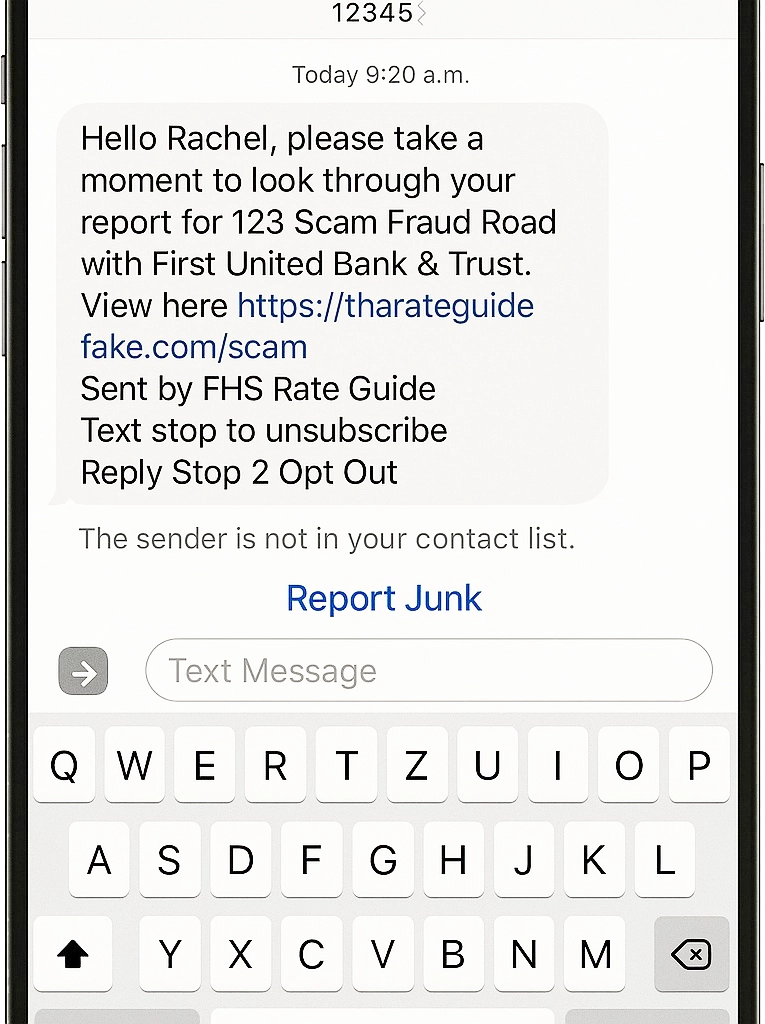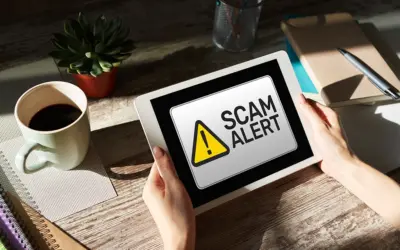Security of your money.
At First United Bank & Trust, we hold the security of your confidential information in the highest regard. We take measures to ensure your non-public data is secure and protected. This means working with you, keeping you up to date on the many different types of scams.

Sample Fraudulent Message
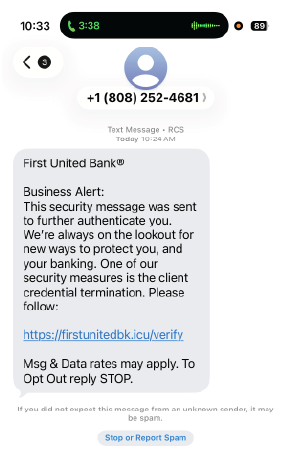
Safeguard your personal information!
First United Bank & Trust has been made aware of a recent surge in bank imposter scams targeting our customers.
Fraudsters continue efforts to pose as First United Bank & Trust through text messages and phone calls, attempting to trick individuals into clicking a link to “reset” their password or verify account details.
These messages may look legitimate, and in many cases, the scammers are even spoofing our official phone number, making the call or text appear as though it’s coming directly from the bank. They may use urgent language or threatening warnings to pressure you into taking quick action.
Important Note:
We will never ask you to click a link, provide login credentials, or share sensitive information through text message or over the phone.
If you receive an unexpected request like this, it is a scam.
Protect Yourself
✔ Never click on unexpected links
✔ Never share online banking credentials or one time security codes
✔ Hang up and call us directly if something feels off
✔ Save our official number in your phone for easy access
If you’re ever unsure whether a message or call is genuine, contact our
Customer Service Center immediately at 1-888-692-2654. We’re here to help keep your accounts safe.
Garrett County Businesses Warned of Rising Invoice Scams
The Garrett County Chamber of Commerce, in collaboration with the Garrett County State’s Attorney’s Office, has issued an important alert to local businesses regarding a surge in fraudulent invoice scams.
These scams are becoming increasingly sophisticated, with criminals sending fake invoices that closely resemble legitimate bills from vendors or government agencies. Often, these invoices demand immediate payment for goods or services that were never ordered or received.
While small businesses are frequently targeted, larger organizations and nonprofits are also at risk.
“The Chamber is committed to protecting the vitality of our business community,” said Nick Sharps, President of the Garrett County Chamber of Commerce. “These scams are designed to look routine, but a moment’s vigilance can prevent serious losses.”
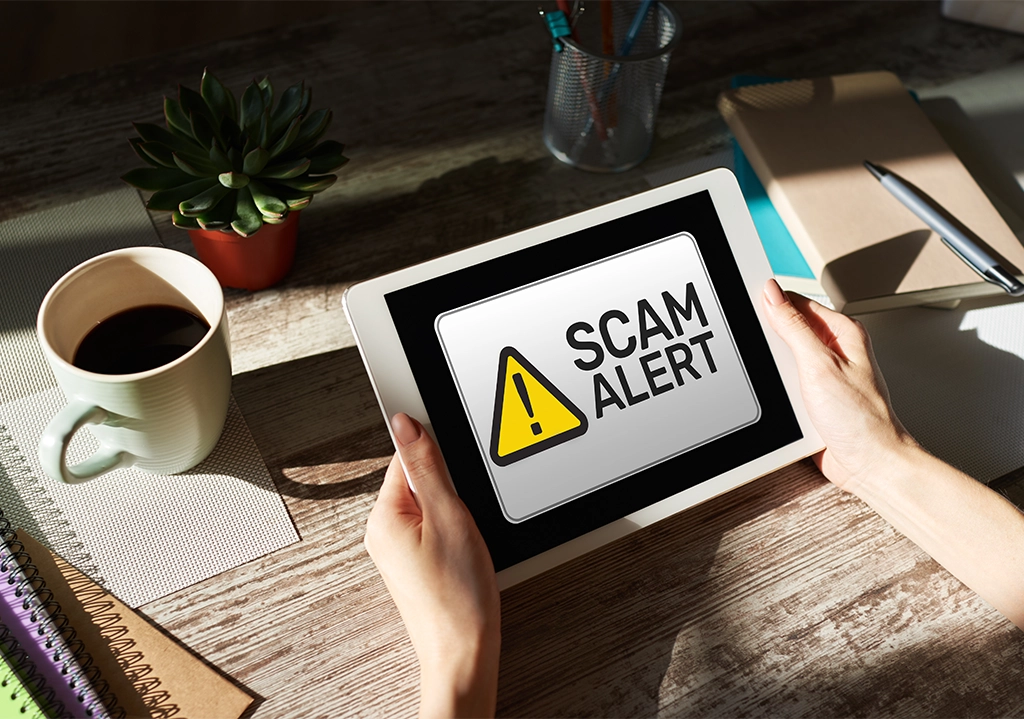
🚨 Text Message Scam Alert 🚨
We’ve been notified of a new text scam targeting our community. These messages may appear to be from First United Bank & Trust, but they are not legitimate.
Never click suspicious links — especially on personal or company devices.
If you have received an unusual email, phone call or text from First United Bank & Trust, such as a request for personal login or password information – question it! Then take immediate action in one of these ways:
- contact our Customer Service Center at 1-888-692-2654
- forward suspicious emails to: abuse@mybank.com
When Bad Weather Hits, So Do the Fraudsters
Here are a few ways to protect yourself against scams:
- Watch for utility imposters, who will ask you to pay for repair or to replace equipment, and make sure to ask them for identification.
- Only hire licensed and insured contractors.
- Don’t pay for repairs or debris removal in cash.
Like, Share and Follow us on social!
Make sure to follow us on social media for the latest information on potential fraud and scams.

The Federal Trade Commission offers a variety of information about weather emergencies scams.
Can You Spot an Investment Scam?
Imagine this: a friend messages you out of the blue on social media. They say they’ve found a way to make quick money with little to no risk — and they want to show you how. Sounds tempting, right?
Hold up. That’s likely an investment scam.
The Rise of Crypto Scams
Investment scams, especially those involving cryptocurrency, are on the rise. In fact, the U.S. Department of Justice (DOJ) recently seized a staggering $225.3 million linked to alleged crypto investment scams. According to the DOJ, this is the largest cryptocurrency seizure in Secret Service history.
These scams often start with a relationship — sometimes even impersonating someone you know. Scammers build trust, then convince victims to “invest” in what appears to be a legitimate crypto opportunity. But behind the scenes, it’s a sophisticated scheme designed to steal your money.
Don’t Be a Victim of Identity Theft.
Have you become a victim of identity theft? Would you recognize it right away?
There are blatant examples of identity theft:
Money is gone from your checking account, your checks are bouncing, and/or there are charges on your debit or credit card you don’t recognize.
But there are more subtle signs that can hint that identity theft may be happening.
So what are the hallmarks?
- There is a sudden, unexplained drop in your credit score.
- Mail comes to your house, but it is in someone else’s name.
- You’re unable to log into online accounts and/or find them locked.
- You are notified that your personal information was part of a data breach.
What to do if you suspect your accounts have been compromised:
- Change online passwords.
- Review financial statements, and alert your financial institutions.
- Give your credit report a thorough review.
- Consider placing a security freeze on your credit report.
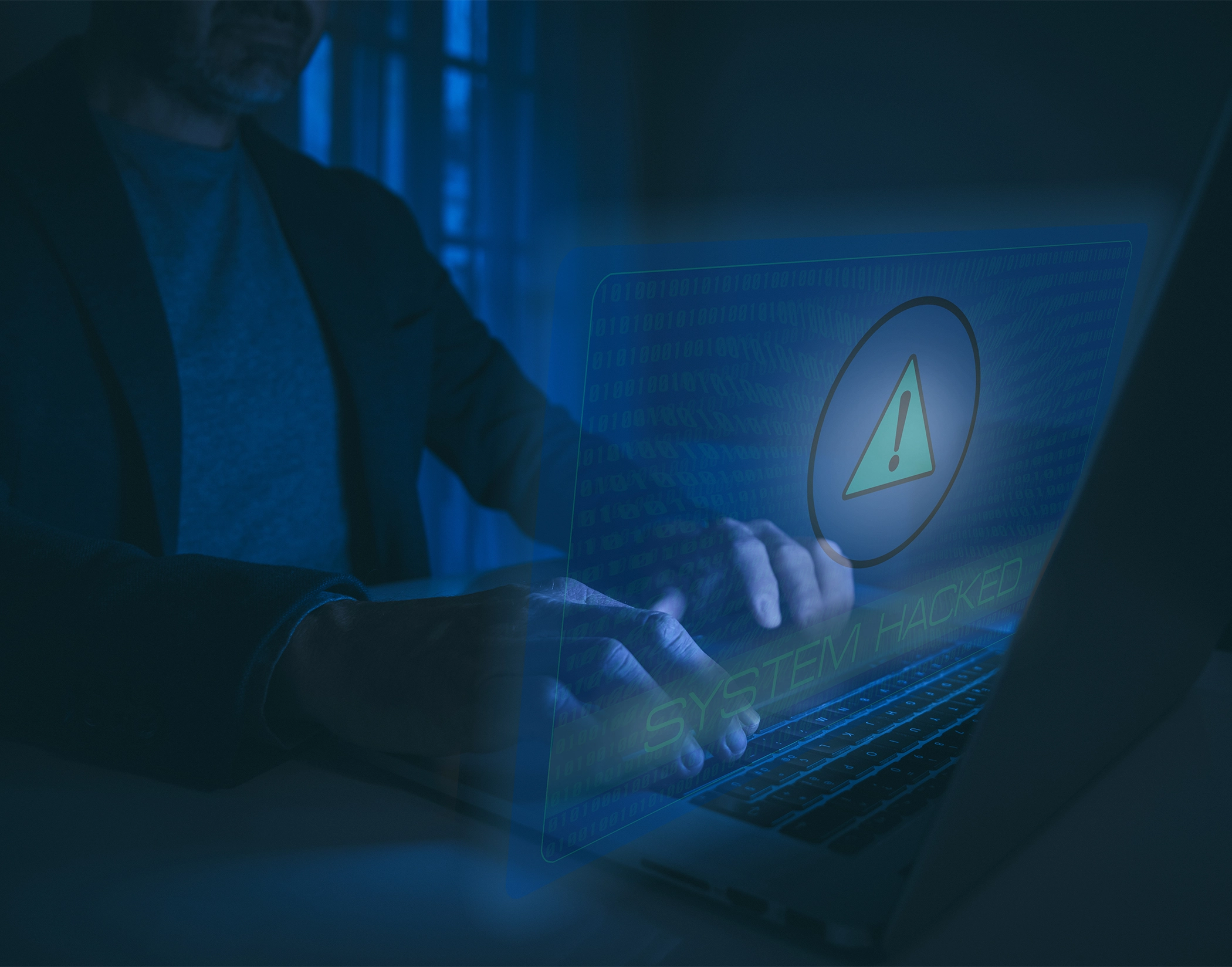
The American Bankers Association has helpful hints to help consumers watch for the signs of identity theft and what to do if you become a victim.
Protecting your online access is paramount for First United Bank & Trust, which is why we’ve included several security features to keep clients’ personal information safe.
Lead Treasury Management Specialist Mandy Shaffer talks about these security layers.

Report suspicious calls to the FTC by filing a consumer complaint form or calling the hotline, 1-877-FTC-HELP.
Learn how to prevent identity theft
Identity theft is on the rise, and scammers are finding new ways to access your personal information every day.
That’s why it’s important to keep a watchful eye on your finances and be alert, especially around the holidays when a lot of money is probably moving in and out of accounts.
At First United Bank & Trust, we’re committed to keeping our customers in the know about ways you can protect yourself and your assets.
Here are a few ideas to protect against identity theft:
- Choose unique PINs; avoid using Social Security numbers or birthdates.
- Tear up or shred receipts and bills before throwing them away.
- Check websites for an SSL certificate: Look for a lock symbol to the left of the company name and “https” in the URL.
- Be wary of pushy calls-to-action or limited-time offers that require your personal information.
- Watch out for telemarkers; offers of free trips and discounted magazine subscriptions are common scam tactics.
- Don’t give out bank account information or credit card or social security numbers to an unsolicited caller, even if the call is from a familiar company.
Can You Spot a Phishing Scam?


Helpful Steps to Protect Your Account
Following these steps can further protect your account and ensure safety on your digital banking journey.
Be sure to slow down, ask yourself questions and…
- think twice before clicking links, downloading attachments or replying to texts regarding your account information.
- never give out personal information in response to an unsolicited call or email.
- use strong passwords.
- set up Mobile or Internet Banking account alerts.
- use firewall software to protect your computer.
- update your operating system – check the Windows Update center on your PC to see available updates.
- run the latest browser technology. Click on your preferred browser to find the latest version: Edge | Firefox | Chrome
- exercise caution when posting information on social media.
Banks don’t do that!
First United Bank & Trust will NEVER…
- request your personal information (e.g., account number, Social Security number or mother’s maiden name) through email, U.S. mail, text or phone unless you initiate the contact or we are completing an application for you.
- request your online banking passcode – this should be kept safe and secure by you and not written or shared with anyone.
- send an email or text requesting that you click on a hyperlink to enter your login credentials or personal information.
Reporting issues
If you have received an unusual email, phone call or text from First United Bank & Trust, such as a request for personal login or password information – question it! Then take immediate action in one of these ways:
- contact our Customer Service Center at 1-888-692-2654
- forward suspicious emails to: abuse@mybank.com
Security Resources
Be sure to access our collection of fraud and security topics in our Finture Financial Education Center, powered by Banzai, along with these helpful articles:
- Finture Fraud and Security Insights
- 50 Internet Safety Tips for 2024
- ABA Cybersecurity Resources
- CISA Cyber Services & Tools
- Computer Security article FROM THE FTC
- Report identity theft by visiting the Federal Trade Commission at IdentityTheft.gov
- Protecting yourself from ID Theft from the MD Attorney General
- Identity Theft resources from the FDIC
- Recovering from identity theft? Use this interactive guide from the FTC to help you during the process.
- Small Business Guide
Podcasts
What Matters Most Podcast Episodes Related to Security
Blog articles
Stay Smart, Stay Safe – It’s Cybersecurity Awareness Month
October is National Cybersecurity Awareness Month, and it’s the perfect time to sharpen your defenses against scams and fraud. At First United Bank & Trust, we care deeply about our community, and that means helping you stay informed and protected.
Watch Out for Student Loan Scams
Scammers are stepping up their game, sending slick emails, making bold promises, and using official-looking logos to trick borrowers into handing over money and personal info.
Garrett County Businesses Warned of Rising Invoice Scams
The Garrett County Chamber of Commerce, in collaboration with the Garrett County State’s Attorney’s Office, has issued an important alert to local businesses regarding a surge in fraudulent invoice scams.
Don’t Let Travel Scams Ruin Your Vacation
From fake travel sites to phishing emails that look like they’re from your favorite airline, fraudsters are getting creative.
Can You Spot an Investment Scam? Here’s What You Need to Know
Investment scams, especially those involving cryptocurrency, are on the rise. In fact, the U.S. Department of Justice (DOJ) recently seized a staggering $225.3 million linked to alleged crypto investment scams. According to the DOJ, this is the largest cryptocurrency seizure in Secret Service history.
Job and remote work scams on the rise
Looking for a new job, especially if you’re currently unemployed, can be an arduous and frustrating task.
Avoid becoming a money mule
You may think that you could never fall for a scam, but as criminals become more and more sophisticated, anyone is susceptible to becoming a money mule.
Reduce Your Risk of Check Fraud
Businesses are often the primary targets of professional check fraud schemes, particularly those orchestrated by organized criminal groups. Among the various forms of fraudulent activity, payroll checks are a frequent target due to their predictable nature and high...
Avoid Financial Fraud and Identity Theft
Criminals are constantly inventing new ways to obtain personal information. Increasing your awareness of their tactics, protecting your personal information, and monitoring your financial accounts and credit report are effective steps to avoiding fraud.
Can You Spot a Phishing Scam?
Online scams aren’t so scary when you know what to look for. And at First United, we’re committed to helping you spot them as an extra layer of protection for your account.


